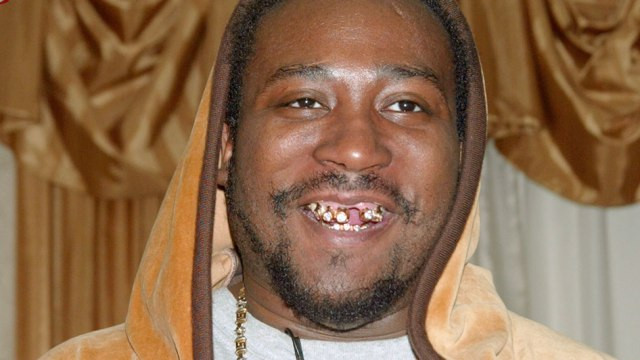Thank you, Kanye: Music could be one of blockchain's biggest beneficiaries
Bryce Weiner, CEO and Founder of AltMarket, says most blockchain projects for music have simply missed the point.

Blockchain technology is a new financial frontier with broad social, economic and cultural possibilities. While Bitcoin and other cryptocurrencies have only just found what one might call "regulatory support," alternative applications for the technology have been pursued for years without any real results materializing. This could be the year that everything changes, when blockchain technology and cryptocurrencies will find actual industrial application, but perhaps not where some might expect.
The industry that could be the first "out of the block," and be a major beneficiary of blockchain, is music.
Why music?
Applications for intellectual property like music are instantly apparent. Intellectual property is itself murkiest within the music industry, and dozens of projects are underway which promise all sorts of ephemeral "disruption." This includes everything from revenue sharing of catalog royalties to decentralized databases of who owns what to complete studio-to-streaming service solutions.
The technology, however, isn't what prevents most of these projects from reaching any sort of marketable appeal. Rather, it is the questionable fundraising, ongoing regulatory compliance, friction to participation and the fact that most blockchain projects for music have simply missed the point. Those current projects tend to focus on redistribution of wealth via royalty splits and data scrubbing rather than creating any new wealth and development of additional revenue streams.
The Music Industry Isn't Broken. Seriously.
The music industry certainly has logistical issues, but to say it requires "disruption" or "rethinking" is to miss the point of what the music industry does. Music is first and foremost an artistic medium. Art defies monetary definition, as the value is purely subjective.
The somewhat strange ways the music industry behaves (and the problems those behaviors create) are unique to the mass marketing of artistic creations. Some of the greatest problems are data accuracy (it's not unusual for a simple typo to delay royalty payments), data confusion (multiple songs/artists with the same name) and data validation (justification of payments).
While much has been made of the technological implementations of blockchain technology to the application of music, precious little has been done to explore the use case for which the entire world knows blockchain technology has a distinct advantage: moving value from Point A to Point B without an intermediary. What has emerged is a regulatory compliant means for an artist to raise the funds from their existing fanbase to enter a studio and hone their craft without royalty advances or oppressive contracts.
Thank you, Kanye.
When it comes to the creation of new wealth, we saw a fleeting moment of this in 2014. It was then that an anonymous blockchain developer launched KayneCoin, bearing the likeness of Kanye West. Mr. West took appropriate legal action as one might when their image is being used to monetize a product with which they have no permission to do so. But it did set the precedent for how one might properly execute legally branded cryptographic tokens as collectible merchandise.
This is an intellectual property application for blockchain technology that isn't driven by rights management, but the application of time-tested legal frameworks for both intellectual property and securities regulations as they pertain to collectibles. From a regulatory perspective, these would be a sub-class of a utility token called an "access token." The utility is in providing exclusive access due to limited supply to special offers and promotions similar to a fan club membership.
Solutions Are Coming
Both legacy and emerging musical artists are in a prime position to benefit from the commercial possibilities of blockchain. When it comes to those legacy artists or their estates looking to build/extend their brands as well as ensure usage and royalties are fairly and accurately implemented, blockchain is a perfect match. For emerging artists and growing labels, the application of blockchain enables a more direct connection with the audience. In a lot of ways this frees up the artist to truly express their vision rather than being subject to the rules of a corporate behemoth that's too often focused on the bottom line.
We're bringing this vision to market with today's announcement that we're partnering up with the Estate of Ol' Dirty Bastard of the legendary Wu Tang Clan to release the "Dirty Coin." Together we'll create officially-licensed cryptocurrency and blockchain-technology enabling them to fund their own music projects. The first effort is working with ODB's son, Young Dirty. He's currently in the studio recording his first album, which is slated for a Fall 2018 release. But that's just the beginning for them and for this watershed moment for blockchain.
Keep It Simple
Blockchain technology is here to stay. Though the promise of the technology seems unlimited, the practical applications that have found consumer use in the last decade may be counted on one hand (with four fingers left over). If the music industry... if fans and artists... are to gain real benefits from what this technology offers, then it should be in the manner that we already know will disrupt any industry: put more money in the hands of those who create content and the industry will disrupt itself.
Bryce Weiner, CEO and Founder of AltMarket Inc. ( https://alt.market/ ), is a renowned expert and innovator in the cryptocurrency space. Bryce is also CEO of Tao Records and founder of the Tao Network, a public blockchain network specifically tailored to suit the needs of music industry applications.





















